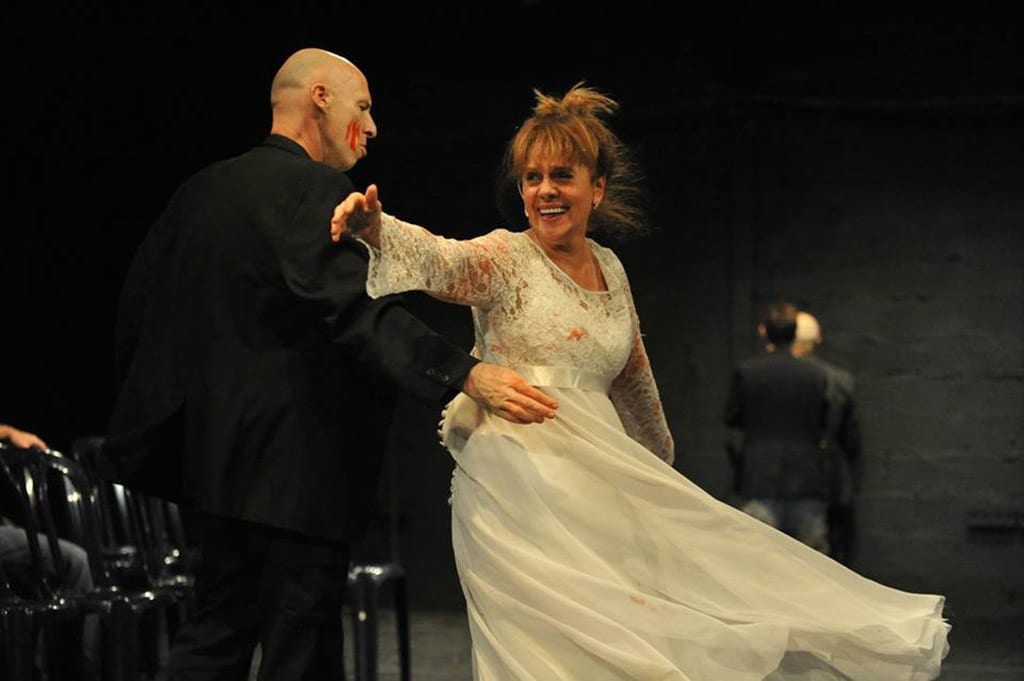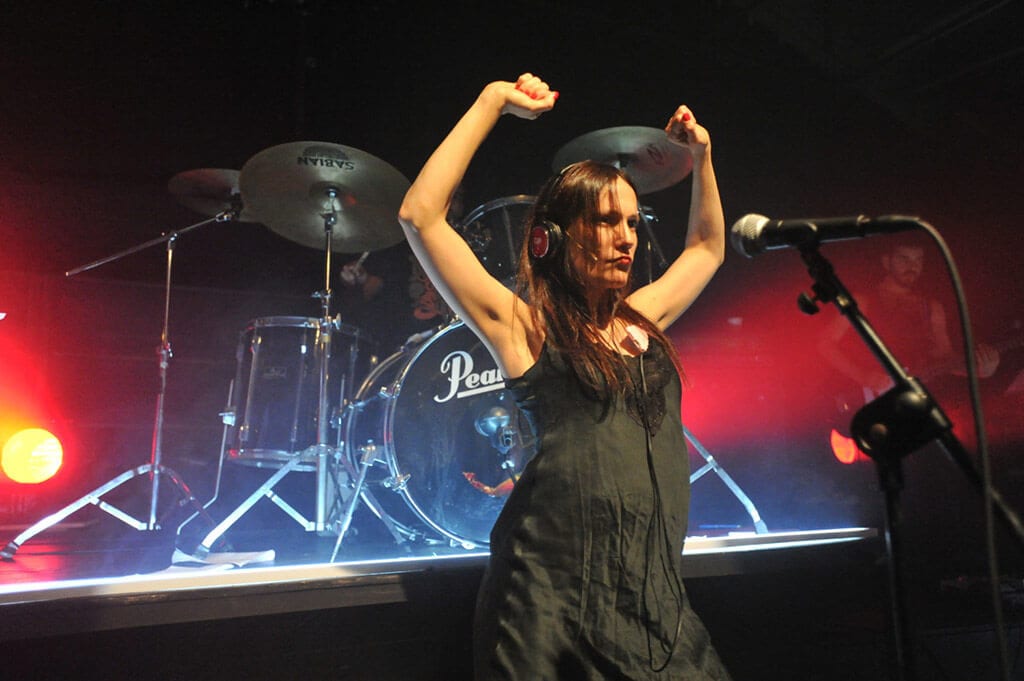We wanted to do Müller’s play, explains Gil Alon (in Hebrew), before slipping into the role of Hamlet, “but Shakespeare’s wouldn’t let us go”. So Tmuna Theatre don’t perform Müller’s HamletMachine, but they do capture the tough, post-modern nature of its monologues. Nor do they perform Hamlet, though they capture the essence of Shakespeare’s play. What they do perform is a powerful hybrid, half Hamlet the man, half HamletMachine. It challenges Shakespeare with the same intense scrutiny as it challenges Müller and, weaving their two playtexts together, Tmuna Theatre and director Nava Zuckerman interrogate the characters to create a production of astonishing psychological depth. At one point Alon steps out of character to admire Ophelia’s ability to squeeze a whole lifetime into three minutes of a song. As actors, Alon explains, “we work for days, weeks, months to get one pure minute.” There are many minutes of pure drama in this promenade HamletMachine, and one hundred and thirty minutes of seriously impressive theatre.
At the beginning of the show Gertrude (Ricky Hayut) invites us into her home like a gracious hostess. We witness her grief at the funeral procession and see Claudius (David Zeevi) support her as she breaks down. Hamlet and Ophelia (Einat Weizman) mope about while Horatio (Beni Eldar) lingers at the periphery. Soon sirens sound, spotlights shine into the audience and we’re whisked away in a frenzied military evacuation. There’s definitely something rotten in this Denmark – it first looks like war but is later revealed to be a revolution. Next we’re in Hamlet’s room where he’s suddenly animated, battling with his grief and anger. Horatio pours him hot tea and offers sympathy that quickly turns to murderous encouragement. After witnessing Hamlet’s breakdown we walk back into the main hall where we meet Weizman’s bad-ass Ophelia and where, after a row with his fragile mother, Hamlet returns with a bloody dagger having killed Polonius.
Things get really interesting when the audience is evacuated yet again and led into Ophelia’s room to wait for the as-yet-unidentified trouble to clear. We find a nervous Ophelia packing and pacing but when Hamlet enters she becomes subdued. Müller’s text, we hear, doesn’t let her escape into the water – it makes her stay and fight, and choose between Hamlet and the memory of the father he murdered. By the end of this production it seems she chooses neither, instead becoming a feisty (if emotionally tortured) revolutionary, but first we get an incredibly heartbreaking and intimate bedroom scene between the couple. Before this moment, both have been exposed as deeply self-destructive characters. “I’m addicted to suicide”, Ophelia says; “I wish my mother had one hole less”, says Hamlet, ruing the day he was born. “He was my father”, Ophelia tells him in a tiny voice. Their love is clearly doomed but for a moment, Hamlet cradling Ophelia in a tender embrace that’s also a death grip, it is so beautiful that you could hear a pin drop if it wasn’t for people sniffing back tears. When he says “Get thee to a nunnery” it’s not an order barked in a moment of rage, like it is in most Hamlets, but a sad and desperate plea for her to break their endless cycle suffering. Moving between the rooms had been a little awkward logistically, the drama broken up by the audience’s navigation of the dark, labyrinthine corridors of Gdańsk’s Shakespere Theatre. When Ophelia whispers “follow me”, however, it works brilliantly – we do, rushing into the other space desperate to see what happens next.
The finale feels a little muddled after such a perfectly claustrophobic and emotionally focused scene. But the revolution that rises as the bodies fall into wheelchairs (pushed by none other than Horatio who, over the course of the evening, has morphed into a kind of Hamlet’s Conscience/Grim Reaper figure) is a genuinely exciting ending, and for a production based on the well-worn tragedy of Hamlet this is no mean feat. The show ends with Horatio mocking Shakespeare, saying “Hamlet-schamlet” before baring his buttocks to the crowd in a playful final moment that throws all that came before into stark relief. Tmuna Theatre’s HamletMachine is a dark and twisted production that offers striking insights into both its source texts. A rich and surprising interpretation, it’s a fantastic evening’s theatre and a real achievement for the company.



